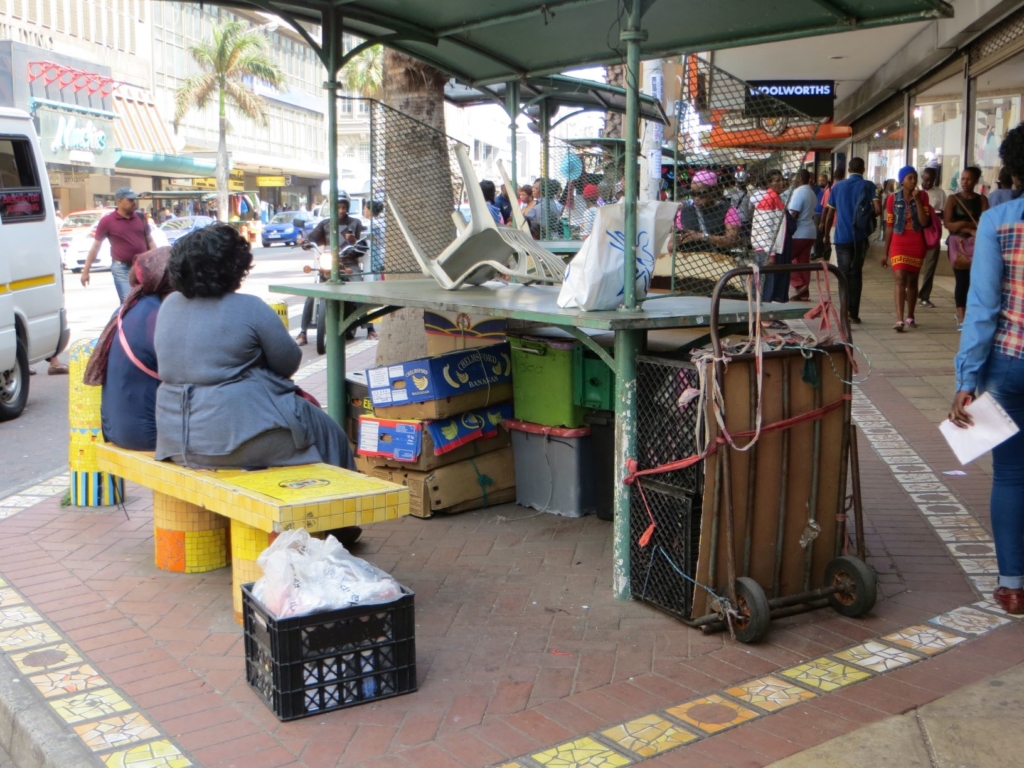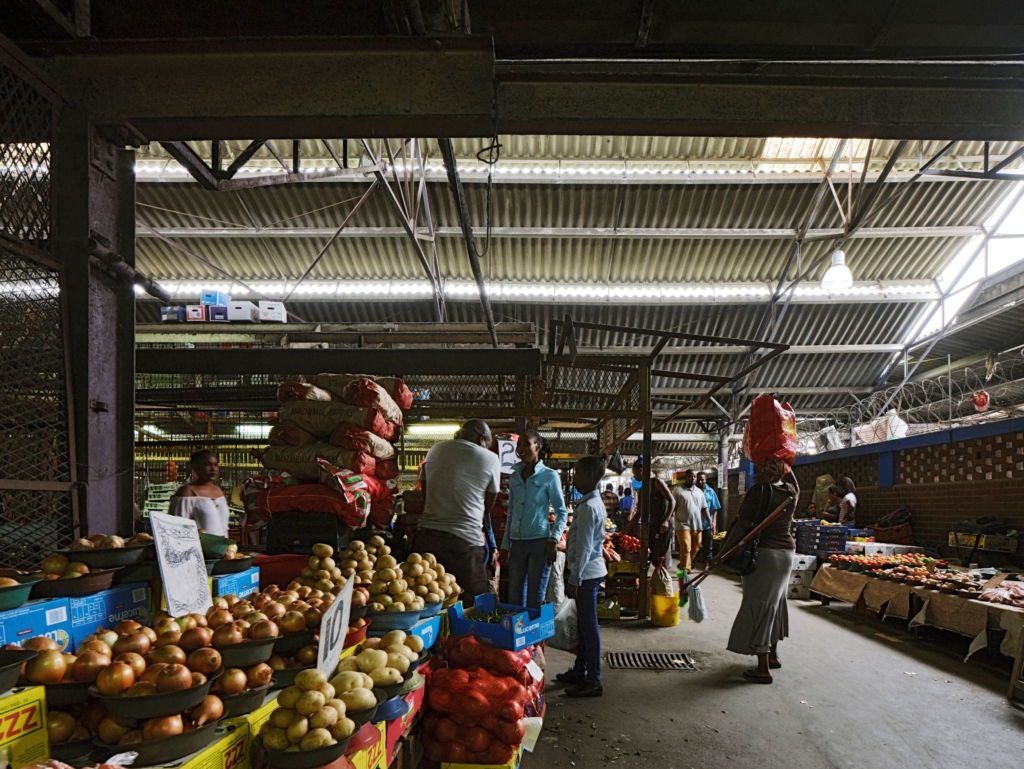Sarah Heneck
This is a follow on piece, tracking the impacts of coronavirus on the informal economy. Read the previous blog here.
After almost 6 weeks of no income for the majority of informal workers in Warwick Junction, the move to lockdown level 4 offered a slight relief for those who are now able to work. For the past few weeks, life has been very slowly returning to Durban’s central trading hub and a huge surge in numbers of informal workers and commuters is expected on June 1st as we move to lockdown level 3. However, a large degree of uncertainty remains as to how informal businesses are going to fare and how physical distancing and hygiene measures are going to be upheld.
The WHO has “recognized the benefits of traditional, complimentary and alternative medicine” and has even acknowledged their potential for treating COVID-19. Warwick Junction’s Traditional Herb and Medicine (THaM) Market has been operational for the past few weeks. The opening of this market lessened the financial pressure on these traders but only 50 out of the approximately 300 traders are able to work per day, in order to remain compliant with physical distancing and hygiene guidelines.

The seamstresses who work in Berea Station have been able to acquire permission from PRASA to sew PPE masks, under the conditions that they implement physical distancing, wear face masks and have hand sanitizer available at all times. According to the regulations, it is also permissible for them to manufacture and sell winter clothing.
Some traders who wish to return to work have been unable to do so because they “don’t have money to start over.” Other traders have returned to work without permission out of desperation, but without valid permits they risk being fined or arrested. Similar challenges are being experienced across municipalities, read more here.
The traders who have returned to work are still dealing with numerous disadvantages. Their customer base (and therefore their profit) has decreased. A Berea Station food trader who was earning approximately R200 per day before the lockdown, has recently returned to work is now only earning R60 to R70 per day. Their supply chains are interrupted; for example, Barrow-operators are still not allowed to work under lockdown level 4 which means it is difficult for traders to get their stock from the wholesalers to their stalls and from their stalls to storage facilities and back again. The traders are not being provided with any protective equipment so in order to protect themselves and their customers they need to buy masks and hand sanitizer themselves. The prices of these goods have gone up dramatically in the past few weeks, making them less accessible to informal traders, who are already struggling to make ends meet.


The Early Morning Market (EMM) is not currently operational. This market is where the main concentration of fresh fruit and vegetable sellers are situated in Warwick Junction. According to the leader of the EMM Traders Association, the municipality is keeping the market closed until it has been adequately cleaned. However, it has been over a month since they started the cleaning process and there has been no commitment to a date of completion. This leaves the approximately 300 EMM traders (as well as the Barrow-operators who transport their stock) out of work for the indefinite future. When the market does re-open the plan is to only open 1 of the 8 gates and to only let in 50 customers at a time. The Trader’s Association leader is very worried about this because she thinks it will create chaos and that it will mean that only the traders selling nearest to the open gate will be able to sell any stock.

The COVID-19 emergency relief grant could offer a small amount of relief to informal workers who have lost their source of income as a result of the lockdown. However, informal workers are concerned because many of them have applied for the grant but are unaware if their application has been successful or when/how they will receive the money. As of last week Friday, close to 5 million applications for this grant had been received and only 10 of those applicants had received their money. Traders who are not yet working are becoming desperate;
“we are dying from not working, as for me I don’t even know what to do at this point. I am a widow, I only rely on selling on the street.”
The upcoming move to lockdown level 3 does not mean that informal workers have no challenges still to face. The opening of most of the economy will mean more commuters passing through Warwick Junction; this means more potential customers but also a greater possibility of exposure to the coronavirus. Striking a balance between economic and health interests is imperative. AeT has been communicating with the informal workers on our database via WhatsApp, in order provide them with up to date information on the legislation pertaining to them, and ways to keep themselves safe from the virus, and has distributed over 750 litres of hand sanitizer. Handwashing stations (geza izandla) are being designed to suit the urban informal context.
On a larger scale, AeT is generating ideas around spatial reconfiguration and upgrading of public space in order to support informal work and to ensure hygiene and physical distancing requirements can be met. A huge amount of thoughtful and collaborative work is needed in order to revive Durban’s informal economy and keep informal workers safe when they return to work and it is AeTs hope that government, NGOs and informal traders can all work towards a ‘new normal’ which upholds an inclusive urban environment.


[Feature image: Dennis Gilbert, 2019.]

